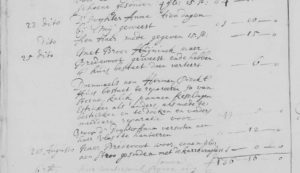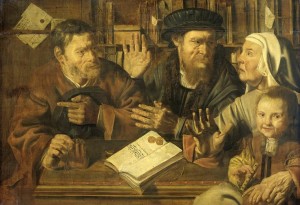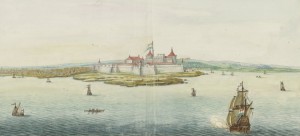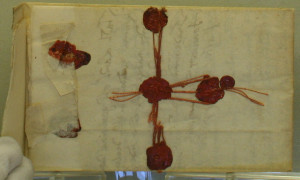Estate inventories and guardians' accounts often contain information about the daily lives of our ancestors. They can tells us what they owned and whom they did business with. If your ancestor was in trade, he may appear in the inventories of some of his clients. This can give you more insight into his business. Depending on the time and place, you can find estate inventories and guardians' accounts in the voluntary court records, in orphan chamber records, or notarial records. Example: … [Read more...]
Quick tip – Emigrants sometimes went to a Notary
Before getting on board, an emigrant may have gone to a notary to: have a will drawn up (you never know if the ship will go down) give a power of attorney to a trusted friend or family member to handle their affairs enter into a work contract, including an agreement about the payment of the passage. This is especially true for richer emigrants, who had business affairs to put in order. They may have gone to a notary in their place of origin or to a notary in the their port of … [Read more...]
“Negroes for New Netherland”
While searching the notarial archives at the Amsterdam City Archives, I came across a record that tells how Dutch merchants took African slaves from Guinea and shipped them to the New World, trading some in the West Indies and taking the rest to New Netherland. As it is rare to find accounts of voyages of slave vessels, I thought I would share this document with you. Translated abstract 14 December 1661 Willem Tijssen of Schermerhorn, age 28, Paul Simonssen of Purmerend, 25, Gerret … [Read more...]
Dutch term: testament
A testament is a last will. Most people did not have a last will and died intestate. Usually, only wealthier people had a will drawn up. Wills can be found in notarial records or in court records (before 1811 in areas that did not have notaries). … [Read more...]





